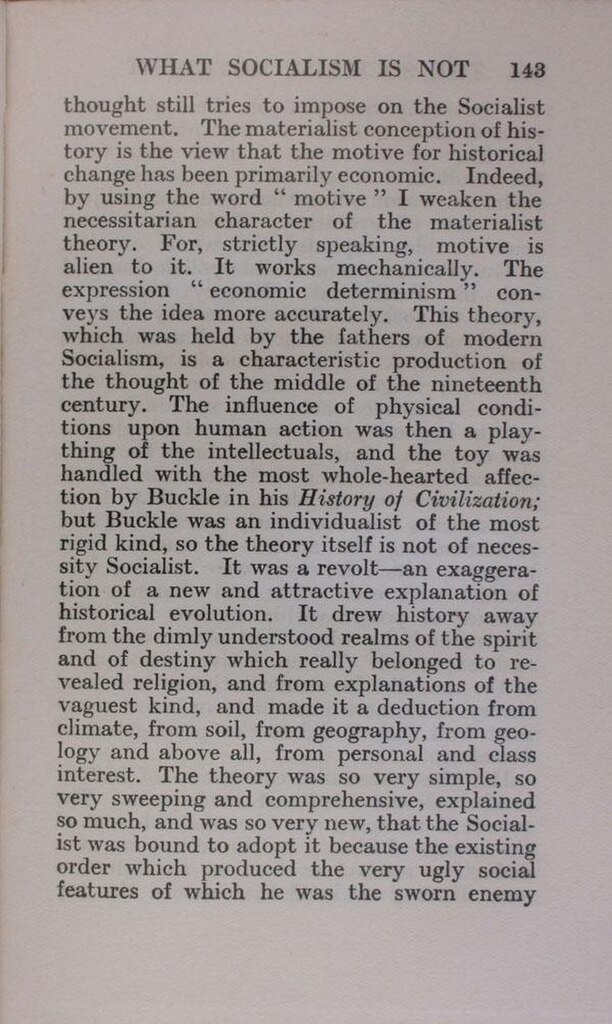thought still tries to impose on the Socialist movement. The materialist conception of history is the view that the motive for historical change has been primarily economic. Indeed, by using the word “"motive" I weaken the necessitarian character of the materialist theory. For, strictly speaking, motive is alien to it. It works mechanically. The expression "economic determinism" conveys the idea more accurately. This theory, which was held by the fathers of modern Socialism, is a characteristic production of the thought of the middle of the nineteenth century. The influence of physical conditions upon human action was then a play-thing of the intellectuals, and the toy was handled with the most whole-hearted affection by Buckle in his History of Civilization; but Buckle was an individualist of the most rigid kind, so the theory itself is not of necessity Socialist. It was a revolt—an exaggeration of a new and attractive explanation of historical evolution. It drew history away from the dimly understood realms of the spirit and of destiny which really belonged to revealed religion, and from explanations of the vaguest kind, and made it a deduction from climate, from soil, from geography, from geology and above all, from personal and class interest. The theory was so very simple, so very sweeping and comprehensive, explained so much, and was so very new, that the Socialist was bound to adopt it because the existing order which produced the very ugly social features of which he was the sworn enemy
Page:James Ramsay MacDonald - The Socialist Movement.pdf/147
WHAT SOCIALISM IS NOT
143
